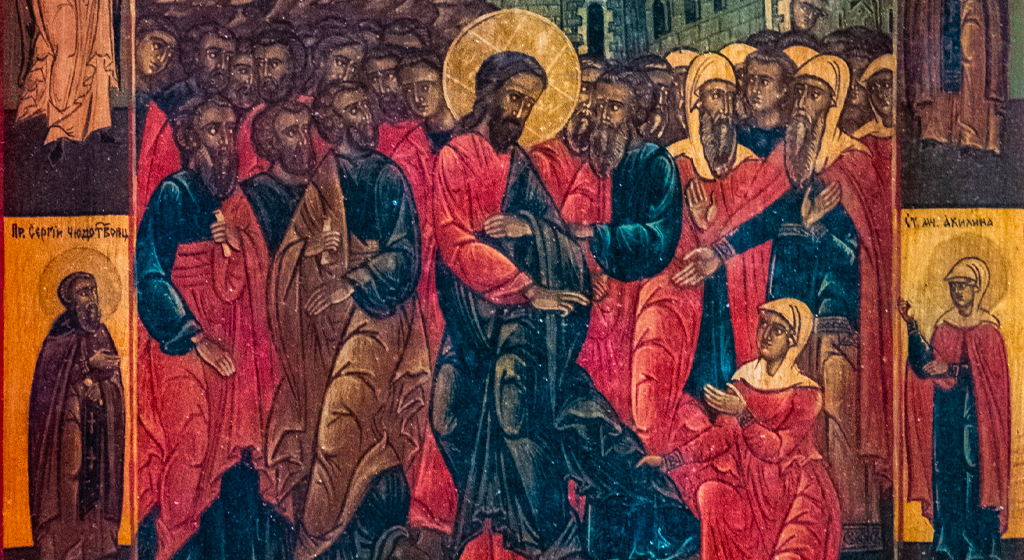Memory of the Poor
Reading of the Word of God
Alleluia, alleluia, alleluia
This is the Gospel of the poor,
liberation for the imprisoned,
sight for the blind,
freedom for the oppressed.
Alleluia, alleluia, alleluia
Exodus 32,15-24.30-34
Moses turned and came down the mountain with the two tablets of the Testimony in his hands, tablets inscribed on both sides, inscribed on the front and on the back. The tablets were the work of God, and the writing on them was God's writing, engraved on the tablets. When Joshua heard the noise of the people shouting, he said to Moses, 'There is the sound of battle in the camp!' But he replied: No song of victory is this sound, no lament for defeat this sound; but answering choruses I hear! And there, as he approached the camp, he saw the calf and the groups dancing. Moses blazed with anger. He threw down the tablets he was holding, shattering them at the foot of the mountain. He seized the calf they had made and burned it, grinding it into powder which he scattered on the water, and made the Israelites drink it. Moses then said to Aaron, 'What have these people done to you for you to have brought so great a sin on them?' Aaron replied, 'My lord should not be so angry. You yourself know what a bad state these people are in! They said to me, "Make us a god to go at our head; for that Moses, the man who brought us here from Egypt -- we do not know what has become of him." I then said to them, "Anyone with gold, strip it off!" They gave it to me. I threw it into the fire and out came this calf!' On the following day Moses said to the people, 'You have committed a great sin. But now I shall go up to Yahweh: perhaps I can secure expiation for your sin.' Moses then went back to Yahweh and said, 'Oh, this people has committed a great sin by making themselves a god of gold. And yet, if it pleased you to forgive their sin. . .! If not, please blot me out of the book you have written!' Yahweh said to Moses, 'Those who have sinned against me are the ones I shall blot out of my book. So now go and lead the people to the place I promised to you. My angel will indeed go at your head but, on the day of punishment, I shall punish them for their sin.'
Alleluia, alleluia, alleluia
The Son of Man came to serve,
whoever wants to be great
should become servant of all.
Alleluia, alleluia, alleluia
God's indignation at Israel's sin is communicated to Moses. In this sense, the prophet participates in God's own feelings. How can he give the people the law of life he received on Mount Sinai if they do not listen anymore to the Lord who speaks, they shelter in an idol and seek security in it? Those tablets, words that were meant to remain engraved in the heart, shatter before the unbelief and hardness of heart of the Israelites. Moses does not compromise with the unbelief of his own. Moses finds an intercessor in Aaron, even if he had been part of Israel's betrayal. Aaron finds the words of repentance in acknowledging his sin, the insidious temptation to indulge fears, the search for security at any cost, practical unbelief. There is a solidarity in evil, which often also involves believers, and even a whole people, like Israel in the desert. The reasons of evil are so convincing that people are willing to pay gold to have an idol from which they feel secure. Idols steal the hearts and steal the confidence of men and women.
This is also why we always need a man like Moses and the Word of God to understand our complicity with evil. Indeed, solidarity arises in intercession and prayer, as Moses and Aaron show. Jesus himself exhorted to be united in prayer, assuring that it obtains what it asks for: "If two of you agree on earth about anything you ask, it will be done for you by my Father in heaven. For where two or three are gathered in my name, I am there among them" (Mt 18:19-20).
